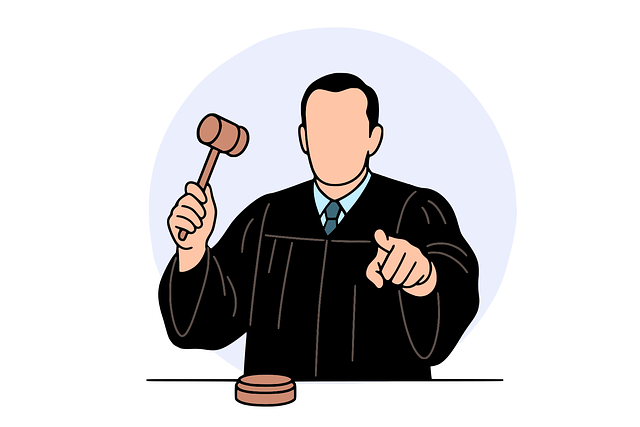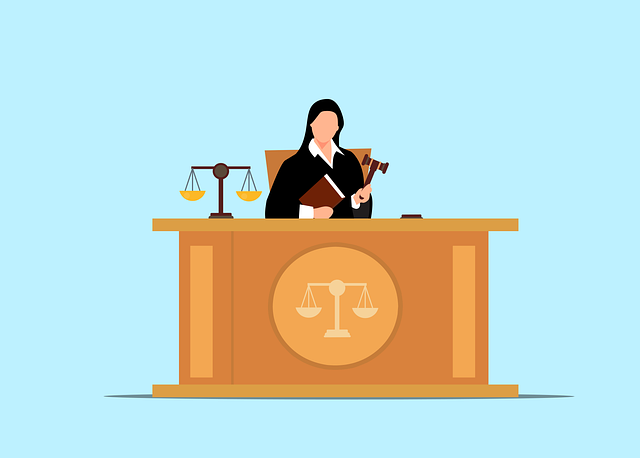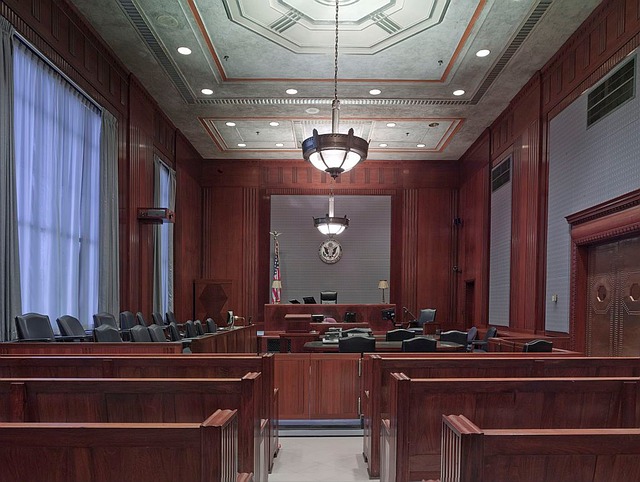
Category: Oregon Contempt of Court Attorney Overview
Oregon Contempt of Court Attorney Overview: A Comprehensive Analysis
Introduction
Welcome to an in-depth exploration of the critical legal concept known as the “Oregon Contempt of Court Attorney Overview.” This article aims to demystify a topic that is often complex, providing readers with a clear understanding of its principles, implications, and global reach. By delving into various facets, we will uncover how this overview shapes legal practices, affects economic systems, and influences technological advancements worldwide. Get ready to embark on a journey through the intricate world of legal procedures and their far-reaching consequences.
Understanding Oregon Contempt of Court Attorney Overview
Definition and Core Components
At its core, Oregon Contempt of Court Attorney Overview refers to a comprehensive legal framework designed to address instances where individuals or entities deliberately disregard court orders or engage in conduct that obstructs the judicial process. This overview outlines the rights, responsibilities, and procedures for both attorneys and clients within the state of Oregon, ensuring fairness and order in the legal system.
Key components include:
- Court Orders: These are formal documents issued by a judge, setting forth specific commands or restrictions. Contempt occurs when these orders are willfully violated.
- Obstruction of Justice: This involves actions that hinder, delay, or interfere with the fair administration of justice within a court of law.
- Legal Recourse: The overview establishes mechanisms for holding parties accountable through sanctions, fines, or even imprisonment for contemptuous behavior.
Historical Context and Significance
The concept of contempt of court has deep historical roots, dating back to English common law. Over time, various jurisdictions have refined and expanded upon these principles to meet evolving societal needs. Oregon’s specific overview reflects the state’s commitment to maintaining an efficient and respectful legal system while ensuring access to justice for all.
Significance lies in several aspects:
- Preserving Court Authority: Contempt laws deter parties from challenging court orders and encourage compliance, thereby maintaining the integrity of judicial proceedings.
- Protecting Legal Processes: They safeguard the rights of victims and ensure that legal actions can be concluded without interference or delay.
- Guiding Legal Practices: The overview provides clarity for attorneys and clients, setting professional standards and ethical expectations.
Global Impact and Trends
International Influence
The Oregon Contempt of Court Attorney Overview has gained international recognition as a model for effective legal governance. Many countries have adopted similar frameworks, adapting them to their unique legal systems and cultural contexts. This global impact is evident in:
| Region | Adoption and Adaptation | Examples |
|---|---|---|
| North America | The concept has been widely adopted across the US and Canada, with variations reflecting regional legal traditions. | United States Code (Title 18, Part I, Chapter 75) provides a comprehensive framework for contempt of court. |
| Europe | Countries like the UK, Ireland, and Germany have integrated contempt of court principles into their legal codes, ensuring consistency across the European Union. | The European Convention on Human Rights emphasizes fair trial rights, including protection from contemptuous behavior. |
| Asia Pacific | Japan, Australia, and New Zealand have implemented comprehensive overview systems, fostering efficient legal processes. | Australia’s Contempt of Court Act 1975 serves as a benchmark for many Pacific Rim nations. |
Key Trends Shaping the Trajectory
Several global trends are influencing the development and evolution of contempt of court laws:
- Digital Transformation: The rise of online legal services and remote hearings has prompted updates to ensure digital evidence and virtual court proceedings can be handled appropriately.
- Human Rights Focus: There is a growing emphasis on balancing contempt powers with individual rights, particularly regarding freedom of speech and expression.
- International Cooperation: Cross-border legal matters have increased, leading to collaborative efforts to harmonize contempt of court laws for international cases.
Economic Considerations
Market Dynamics and Investment Patterns
The legal services sector, including contempt of court practices, significantly impacts the economy. Here’s how:
- Legal Service Providers: Law firms specializing in civil litigation, family law, and corporate matters often handle cases involving contempt issues, generating substantial revenue.
- Legal Technology: Advanced case management software, e-discovery tools, and legal research platforms are in high demand, with significant investment from legal tech startups and established companies.
- Economic Indicators: The health of the legal services market reflects broader economic trends, with factors like GDP growth, corporate spending, and litigation rates influencing industry performance.
Role in Economic Systems
Contempt of court laws plays a critical role in maintaining economic stability and fairness:
- Enforcing Contracts: They ensure that parties fulfill their contractual obligations, fostering trust and encouraging investment.
- Protecting Property Rights: By safeguarding court orders related to property disputes, these laws contribute to a stable real estate market and secure business transactions.
- Preventing Fraud: Strict contempt provisions deter fraudulent activities, promoting ethical conduct in financial markets.
Technological Advancements
Impact on Legal Practices
Technology has revolutionized legal practices related to contempt of court:
- Digital Case Filing: Online submission of court documents streamlines the process, reducing paperwork and processing time.
- Video Conferencing: Remote hearings and depositions via video conferencing have become commonplace, making legal proceedings more accessible and efficient.
- Legal Research Tools: Artificial intelligence (AI)-powered legal research platforms provide quick access to relevant case law and statutes, enhancing attorney productivity.
Future Potential
The future holds immense possibilities:
- Blockchain for Evidence: Blockchain technology could revolutionize evidence presentation by providing an immutable record of documents and transactions.
- Predictive Analytics: AI algorithms might predict contemptuous behavior, enabling proactive interventions and improved court management.
- Virtual Reality (VR) for Training: VR can enhance legal professional training, offering immersive experiences in simulated court settings.
Policy and Regulation
Key Policies and Legislative Frameworks
Oregon’s policy landscape regarding contempt of court is comprehensive:
- Oregon Revised Statutes (ORS) Chapter 43 provides the legal framework, defining contempt, outlining procedures, and specifying penalties.
- Oregon Court Rules offer detailed guidelines for practicing attorneys, including rules for motion practice, discovery, and trial procedures.
- Judicial Council: This body interprets court rules and provides guidance to judges, ensuring consistent application of contempt laws.
Influence on Development
These policies have a profound impact:
- Consistency in Interpretation: Uniform rules across the state ensure fairness and predictability in contempt cases.
- Professional Standards: They set high standards for legal professionals, fostering integrity and ethical conduct.
- Public Trust: Effective policy implementation enhances public confidence in the judicial system by demonstrating accountability and responsibility.
Challenges and Criticisms
Main Issues Faced
Despite its strengths, the Oregon Contempt of Court Attorney Overview faces several challenges:
- Balancing Power and Accountability: There is a delicate task of imposing contempt sanctions without infringing on constitutional rights or becoming overly arbitrary.
- Complex Case Law: The intricate nature of contempt cases, often involving nuanced legal arguments, can lead to inconsistencies in court rulings.
- Access to Legal Representation: Ensuring all parties have equal access to legal counsel, especially in pro bono cases, remains a concern.
Proposed Solutions
Addressing these challenges requires strategic approaches:
- Transparency and Education: Enhancing public awareness of contempt laws through educational programs can reduce instances of willful violation.
- Simplifying Procedures: Streamlining court processes and providing clear guidance to attorneys may reduce complexities in case law.
- Legal Aid Initiatives: Expanding access to legal aid ensures that all individuals, regardless of income, can navigate the legal system effectively.
Case Studies: Successful Applications
Study 1: Family Law Contempt Case
Background: A divorced couple, John and Mary, struggled to adhere to child support and visitation orders. The court issued contempt citations, leading to a complex legal battle.
Solution: The Oregon Attorney General’s office took a proactive approach, offering mediation and financial planning workshops to assist the couple in meeting their obligations. Attorneys involved utilized digital tools for efficient case management and secure communication.
Outcome: The family successfully adjusted their circumstances, enabling them to comply with court orders while reducing acrimony. This collaborative approach demonstrated the positive impact of contempt laws when coupled with support services.
Study 2: Business Disputes and Contempt
Scenario: A small business owner, Sarah, failed to pay a court-ordered judgment to her former partner. The court found her in contempt, leading to asset seizure.
Strategy: Sarah’s attorney negotiated a repayment plan with the plaintiff, ensuring compliance while avoiding severe consequences. The use of blockchain technology for secure financial transactions facilitated the process.
Result: Sarah successfully repaid the debt, maintaining her business integrity and learning the importance of adhering to legal obligations. This case highlights the balance between holding individuals accountable and providing avenues for resolution.
Future Prospects: Growth Areas and Emerging Trends
Potential Growth Areas
The future holds promising opportunities:
- Specialized Contempt Practices: As cases become more complex, specialized legal practices focusing on contempt of court matters may emerge, offering tailored expertise.
- Cross-Border Legal Services: With increasing global connectivity, international legal firms will play a pivotal role in handling transnational contempt cases.
- Legal Tech Integration: Advanced AI and VR technologies will further integrate into legal practices, enhancing efficiency and access to justice.
Emerging Trends
Keep an eye on these trends:
- Data-Driven Contempt Analysis: AI-powered analytics may predict contemptuous behavior patterns, enabling proactive interventions by courts and attorneys.
- Online Dispute Resolution (ODR): ODR platforms could handle less complex contempt cases, providing efficient and cost-effective alternatives to traditional court proceedings.
- Ethical AI in Law: As AI tools become more sophisticated, ensuring ethical considerations in their development and deployment will be crucial.
Conclusion: Navigating the Future of Oregon Contempt of Court
The Oregon Contempt of Court Attorney Overview is a dynamic and essential component of the state’s legal framework. By understanding its history, global impact, economic implications, and technological advancements, we recognize its significance in modern society. As the legal landscape continues to evolve, this overview will remain a guiding light, ensuring justice, accountability, and fairness for all Oregon residents.
FAQ Section
Q: What is considered direct contempt of court?
A: Direct contempt occurs when someone willfully violates a court order or disrupts court proceedings in the courtroom. Examples include loud and disrespectful behavior or refusing to follow a judge’s instructions.
Q: Can individuals face criminal charges for civil contempt?
A: Yes, in certain circumstances. Civil contempt usually involves failure to comply with a court order in a civil case, while criminal contempt carries more severe penalties, including potential jail time, and is often related to obstructing justice.
Q: How does technology improve the efficiency of contempt proceedings?
A: Technology streamlines processes by enabling secure digital filing, remote hearings, efficient case management, and quick access to relevant legal resources, ultimately enhancing overall efficiency.
Q: Are there any protections against false accusations of contempt?
A: Absolutely. The accused has the right to legal representation, due process, and a fair hearing. Attorneys play a crucial role in protecting clients’ rights and ensuring that contempt charges are justified.
Q: Can organizations be held in contempt of court?
A: Yes, businesses, non-profits, and even governments can be found in contempt if they violate court orders or engage in conduct obstructing justice. This includes failure to pay judgments or comply with environmental regulations.









